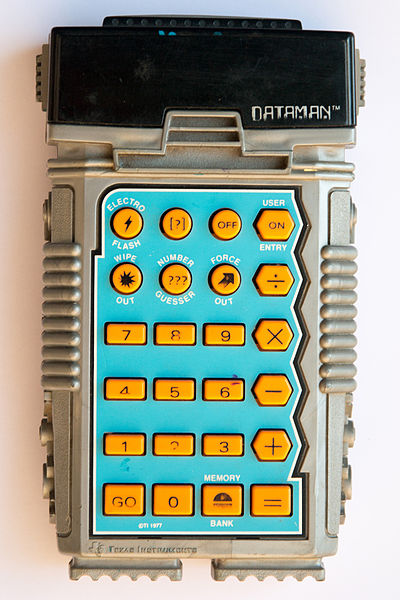A long time ago, when I was a child in school, I had trouble learning my times-tables. Back then, it was expected that students would acquire this important life skill through rote memorization. And every student was expected to be able to recite the table up to 12×12.
144!
I guess I remembered some of it, but I have to admit to this day, I’m a little foggy anywhere from about 7X8 upwards. But I suppose I knew it well enough at the time to get by. To this day, I still know enough of them that if I forget one, (8×9=?) I just go down a level (8×8=64), and then add back up (64+8=72). In this way, I suppose I’m using my knowledge of how numbers work, to compensate for a lack of memorization.
But at the time, it was a struggle. My parents would grill me at the table every night. One night, as my father was quizzing me, he repeated a particularly troublesome one for me:
“Three times six?” he said.
“Um, er…” I was grasping.
“Cripes1, you know this one,” he urged. “Three sixes!”
At this point my most excellent brother, four years younger, called out, “Sixteen!”
For goodness sakes.
So began my introduction to educational technology. My parents bought me a new gizmo that would help me fix my flagging math memorization troubles. It was a calculator-sized toy called ‘Data-Man”. It had an LCD display, could randomly display math problems (like your times-tables), and you could type in an answer. Right answers were rewarded, and it would tally your score, with the goal of urging you to keep improving.

The problem was, even back then (we are talking, what, almost 40 years ago?) I recognized something that confounded me to no end. Right there, in my hand, was a device that ALREADY KNEW THE ANSWER. And instead of making me more interested in memorizing math facts, it only made me wonder,
“Why am I memorizing something that I can look up at a moment’s notice?”
I was in grade school, already wondering why the hell I was memorizing something that I LITERALLY didn’t need to. It seemed ridiculous that I held a device in my hand that could do the math for me, only it refused to do so, in order to force me to do it myself. Oh, sure, the teachers at the time would say things like,
“But what if your calculator breaks, or what if there isn’t a calculator handy?”
Seriously? Today, with the benefit of hindsight, we know that there’s a calculator in every phone, in every computer. I never have to do any math when I’m not near a device of some sort to help me with it. Even google does math.
So here’s the question that educators should be asking instead:
“If you can readily look up the answer on the internet, should it belong on an exam?”
We should be performing summative assessment based on traits like skill and creativity, on the ability to put knowledge to use. Not on memorizing or regurgitating data.
Because the data is already out there, man. That’s no longer the issue.
We need to teach students what to do with it.
Image: Daniel VILLAFRUELA [CC BY-SA 4.0], via Wikimedia Commons